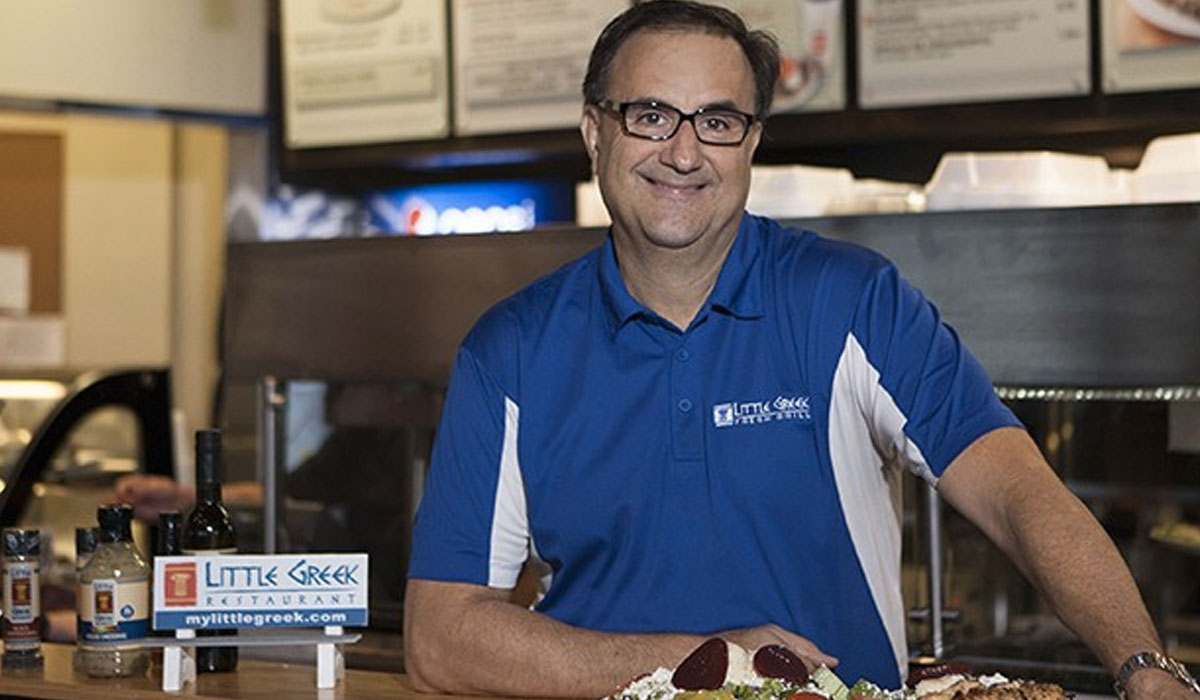Navigating employee compensation is difficult. Increased minimum wage is obviously a major issue and continues to challenge the entire restaurant industry.
We currently have a strong economy and there is a shortage of skilled workers. Third party delivery companies continue to cannibalize entry level restaurant positions. This has forced employers to offer higher pay to attract staff for their locations. We all know that employee compensation affects recruitment and retention.
A joint Business Insider/News To Live By study of millennial revealed that 69 percent identified pay as their most important job consideration. A flexible lifestyle was also found to be important.
Our industry hires many entry-level staff and spends an average of $1,200 in training. As what happened with me, many go on from entry level to leadership positions and even owners. Over 60 percent of Little Greek Fresh Grill franchisees are immigrants.
In our case, Little Greek staff earns an average of $2 an hour in tips for both the front and back of the house staff. Sometimes they earn much more on large catering orders.
Our industry provides free or discounted food and beverages to millions of employees. Bank, grocery and other retail stores do not offer similar benefits.
Little Greek provides employees with extremely flexible hours, something that is very important to our staff. This allows students to earn money while still in school or pursuing other opportunities.
Ultimately, higher wages will require restaurants to raise prices. Unfortunately, some restaurants will close, as customers will not be able to afford to eat out as often.
To put the wage issue somewhat in perspective, Harri—a workforce management software company that works with restaurants—conducted a national survey. One main take-away is that restaurants will most likely raise prices and cut employee hours. The impact of raising menu prices will be connected directly to the cost of employee wages where food cost will take a back seat as the main driving factor.
Restaurant industry employees make up a large portion of minimum wage workers. According to the survey, 83 percent of respondents affected by minimum wage hikes reported that labor costs rise 3 percent in an industry that has very tight margins. Some respondents said they would not make any changes to their business.
According to the survey, some operators responded of their cutting costs, with 64 percent saying they reduced employees and 43 percent saying they eliminated jobs.
The most popular response: to rework food and beverage options to reduce costs.
On the positive side, some cities found no issue with the increase in minimum wage. For example, the increased minimum wage in New York City was forecast to hurt restaurants. By all indications it did not.
What does these findings forecast for our industry? My opinion is that it will vary from market and the workforce environment. Increased labor costs are here to stay. Pay levels should be determined on an individual market basis. You have to determine what scenario is needed to stay competitive and afloat.
Hourly wages in cities and states continue to rise. The waters of restaurant wage can be murky. Hopefully the information I provided will help steer you to shore.
Nick Vojnovic is president of St. Petersburg, Florida-based Little Greek Franchise Development/Little Greek Fresh Grill, a fast-casual Greek-themed multi-unit with an American influence. Little Greek currently has 44 locations in seven states: Arkansas, Florida, Georgia, Illinois, Kentucky, Ohio, and Texas.

